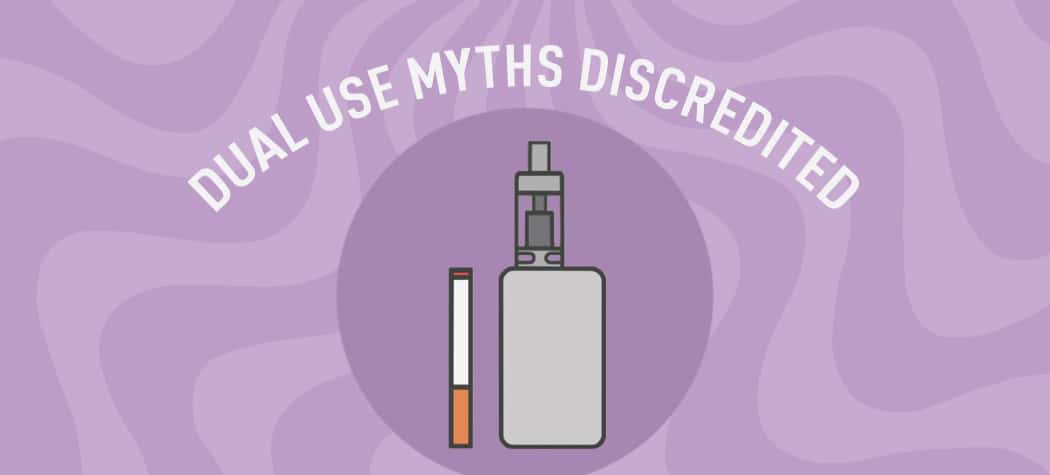Health Studies, Getting Started
Dual Use Myths Discredited
Smokers are being dissuaded from switching to e-cigs and UK vapers are worried about vaping with misinformation about dual use, but is it bad?
A story is circulating in the media that dual use of cigarettes and UK vapes are bad, with some American commentators even going so far as to suggest it is better for smokers to remain using tobacco products. Although quit rates are better by switching completely to vaping, a new study has found that dual use of cigarettes and UK e-liquids “significantly” reduce toxic chemicals in the users’ blood and urine.
We’ve discussed dual use (vaping/smoking) before and our stance hasn’t changed.
Dual use isn’t good for quitting?
The thing to remember is that smokers who completely switch to vaping are three times more likely to be able to quit, according to research completed by academics at University College London.
In the research paper “Associations between dual use of e-cigarettes and smoking cessation: A prospective study of smokers in England” by Sarah Jackson, Lion Shahab, Robert West, and Jamie Brown, the team found that “there was no significant difference in the prevalence of quit attempts at follow-up between baseline dual users and exclusive smokers”.
Also, dual users of e-cigarettes and tobacco fared as well as those who were smoking and using nicotine patches.
So dual use is a bad thing then?
Well, this depends on what ‘bad’ means.
Smoking cessation experts consider the dual use of vapes and cigarettes to be a first step towards quitting for many smokers. It may mean that most don’t successfully quit, but they consider it to be the beginning of a journey where individuals may then make the decision to completely switch to vaping.
One such expert, Dr Colin Mendelsohn says: “Some smokers quit smoking soon after they start vaping. Others take longer and smoke and vape for a period while trying to transition to exclusive vaping.”
Are there any benefits to dual-use?

A team of researchers at the University of Oxford looked at this issue. They analysed subjects for the presence of fourteen biomarkers (toxic chemical compounds) in the blood, urine, and saliva of dual users of vapes and cigarettes. The team do not receive funding from the tobacco or UK vape and e-liquids industries.
They looked at dual users and compared them to the findings from the smokers they also studied in Greece, Italy, Poland, the United Kingdom and the United States.
Of the fourteen biomarkers, they measured, thirteen of them were “significantly reduced” in the results from the dual users compared to tobacco users. Reductions were found in toxins such as nitrosamines, polycyclic aromatic hydrocarbons, and mercapturic acids – all known carcinogens.
What do the results mean?
Dr Colin Mendelsohn commented that the research study completely debunked any claim by people opposed to vaping that dual use doesn’t reduce potential harm or may increase the risk.
He said: “Dual use is less harmful than exclusive smoking because most dual users who are trying to quit substantially reduce their smoking. Many studies show improvements in health in dual users, such as blood pressure and asthma.”
